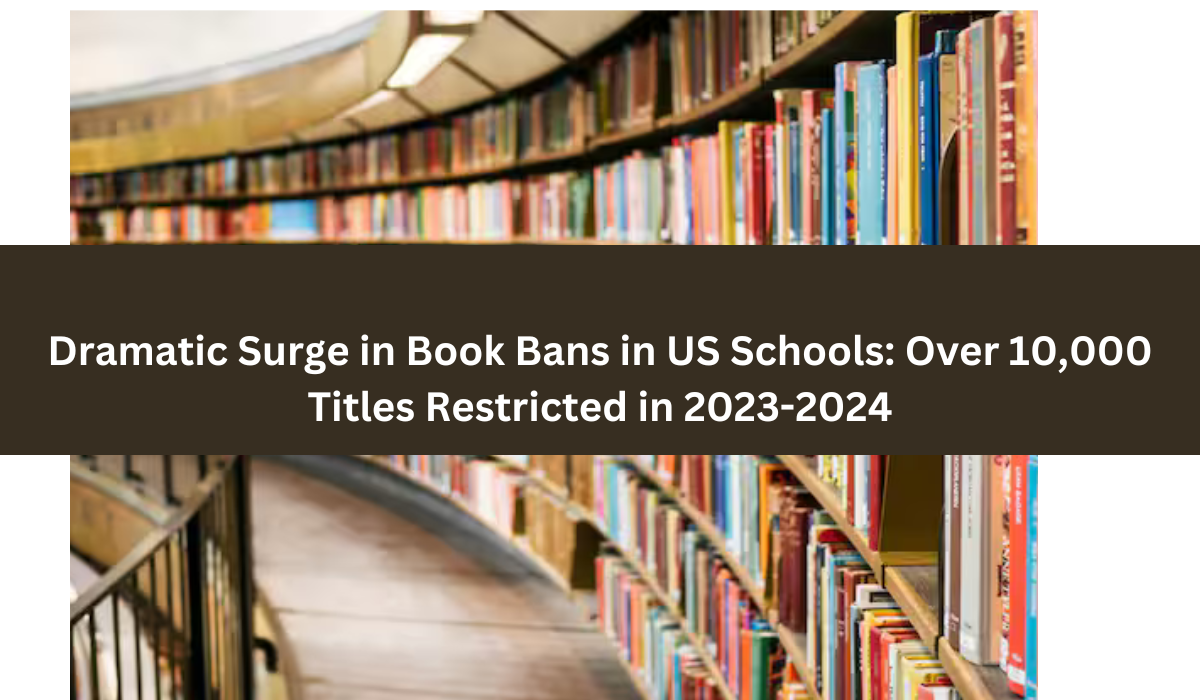In a startling trend, over 10,000 books have been banned in public schools across the United States during the 2023-2024 academic year, marking a threefold increase from the previous year. This dramatic rise has been documented by PEN America, a nonprofit organization dedicated to safeguarding free expression and literary access. The surge coincides with new censorship laws implemented in several Republican-led states, raising significant concerns about educational freedom and the diversity of perspectives available to students.
The Context of Book Bans
The recent findings from PEN America reveal a troubling trajectory in the realm of educational resources. According to their survey, the number of book bans soared from 3,362 in the previous year to nearly 10,000. A significant portion of these bans occurred in states like Florida and Iowa, where legislative actions have directly influenced school policies. In these states, nearly 8,000 books were reportedly banned, indicating a concentrated effort to restrict access to certain types of content.
Beyond these states, school districts across the nation have also felt the impact. For example, the Elkhorn Area School District in Wisconsin saw over 300 titles banned for several months, further emphasizing the pervasive nature of this issue.
Targeted Content and Themes
The report highlights specific categories of books that have been disproportionately targeted. Content related to sexual themes, including romance and narratives about women’s sexual experiences, has faced significant scrutiny. Additionally, books addressing rape, sexual abuse, LGBTQ+ themes, and issues related to race and racism have been increasingly censored. This trend reflects a broader cultural debate about what is deemed acceptable in educational settings and who gets to decide that.
The implications of these bans extend beyond the titles removed from shelves. They raise fundamental questions about the values that educational institutions choose to uphold and the diverse narratives they promote. Critics argue that such restrictions not only limit students’ access to vital information but also hinder their ability to engage with complex social issues and understand different perspectives.
An Underreported Crisis
PEN America’s report also suggests that the number of book bans may be an undercount. Many instances of censorship go unreported, and the organization points to “soft censorship” practices that can be even more insidious. This includes hesitancy in selecting certain books, ideologically-driven restrictions on school book purchases, the removal of classroom libraries, and the cancellation of author visits and book fairs. These actions create an environment where educators and librarians may self-censor, fearing backlash or disciplinary action for including controversial material.
The Broader Implications
The implications of this trend are profound. When books are banned, students lose the opportunity to explore a wide range of ideas and experiences. Literature plays a crucial role in fostering empathy and understanding, allowing young readers to see the world through diverse lenses. By limiting access to certain topics, schools may inadvertently stifle critical thinking and open dialogue, essential components of a well-rounded education.
Moreover, the focus on censoring specific content often intersects with broader societal issues, including debates over race, gender, and sexuality. The rise in book bans can be seen as part of a larger cultural pushback against progressive movements that seek to promote inclusivity and representation. This tension reflects ongoing divisions in American society regarding education, identity, and the role of public institutions.
What’s Next?
As the academic year unfolds, the trajectory of book bans will likely continue to be a contentious issue. Educators, parents, and students are increasingly vocal about their opposition to censorship, advocating for the importance of free access to literature and diverse perspectives in classrooms. Organizations like PEN America are at the forefront of this movement, working to raise awareness and push back against restrictive policies.
In response to this crisis, many educators are exploring ways to maintain a diverse library and encourage open discussions about challenging topics. Initiatives to promote literary access and support for teachers facing censorship pressures are becoming more common, emphasizing the need for community involvement in protecting educational freedoms.
Conclusion
The banning of over 10,000 books in US public schools during the 2023-2024 academic year represents a significant shift in educational policy and practice. As new censorship laws emerge, the fight for literary freedom and access to diverse narratives is more critical than ever. Stakeholders across the education spectrum must come together to advocate for the rights of students to explore, question, and learn from a wide range of literature. In doing so, they can help ensure that schools remain spaces for growth, understanding, and intellectual freedom.



